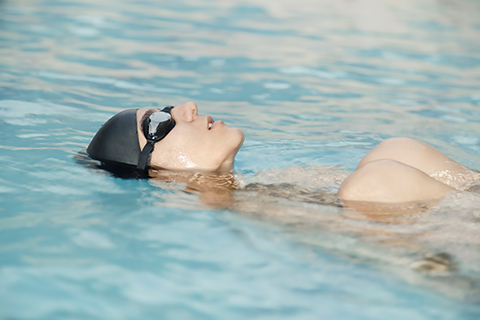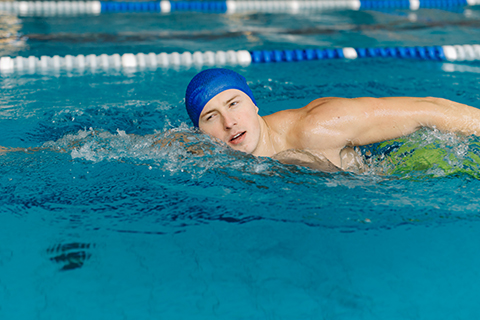Strength training is vital for muscle building and improving athletic performance.
However, athletes and sports professionals alike often look for different strategies to speed up recovery and reduce fatigue and muscle soreness. One widely used strategy is submerging in cold water after exercise, it is known as cold water immersion (CWI).
A study published in the Wiley Online Library claims that extreme temperature exposure, such as cold water immersion, has been used to decrease muscle soreness, perceived fatigue, and recovery time in sports and strength training. Although it is argued that these cold therapies aim to reduce inflammation after exercise, evidence shows that the treatment does not more effectively reduce markers of inflammation compared to low-intensity cycling, nor does it improve recovery from muscle damage caused by eccentric exercise.
Benefits of cold-water immersion after training
As for CWI, an improvement in recovery and performance has been noted in certain types of sports or training, although this is not always the case. Recent studies suggest that the application of CWI after intense exercise may offer positive effects on performance-related recovery. However, it is important to note that the results of CWI studies are influenced by multiple factors, such as the time of evaluation, the nature of the exercise, and the protocol used. Therefore, it is crucial to interpret these findings with caution.
Although athletes normally use CWI to improve short-term recovery and physical performance, this technique could have a negative impact on chronic adaptations to strength training. Both narrative and meta-analytic reviews suggest that CWI after training may inhibit the development of absolute strength and muscle power. It should be noted that these effects may vary according to the type of training and the objectives sought.

In summary, cold water immersion after exercise improves immediate recovery and short-term performance in sport. However, there are concerns about the prolonged effects of CWI on long-term muscle adaptations. Due to the different variables and results to be considered in relation to CWI, it is necessary to evaluate its application on an individualized basis within a training program. In all cases, it is recommended to seek appropriate guidance from a specialized professional who will consider the specific needs of each person.
Continue your professional training
In recent years, sports management has experienced significant growth and unprecedented advances. A whole range of new opportunities have opened up that require skilled professionals who are familiar with the complexities of the changing sports landscape. So, if you want to leave your mark on the world of sports, both on and off the field, at the Universidad Internacional Iberoamericana (International Iberoamerican University, UNIB), we offer the Master in Physical Activity: Sports Training and Management. This master’s program, designed specifically to meet these demands, provides students with the essential knowledge and skills to excel in this exciting and dynamic field.
We encourage you to take the next step and become part of our master’s program. Let us help you realize your dreams and maximize your potential to create change in the exciting world of sports management. Together, we can shape the future of sports.
Source: Throwing cold water on muscle growth: A systematic review with meta-analysis of the effects of postexercise cold water immersion on resistance training-induced hypertrophy

